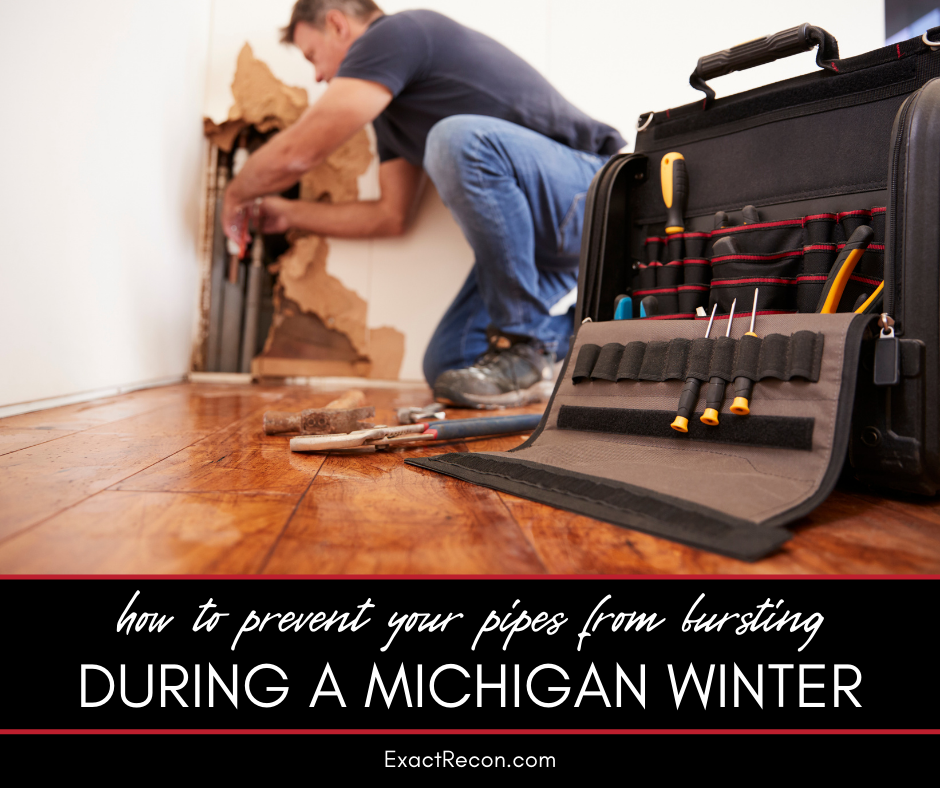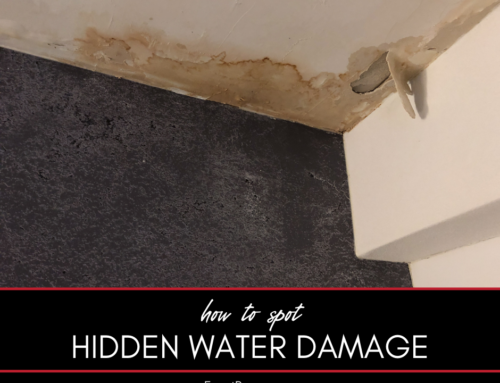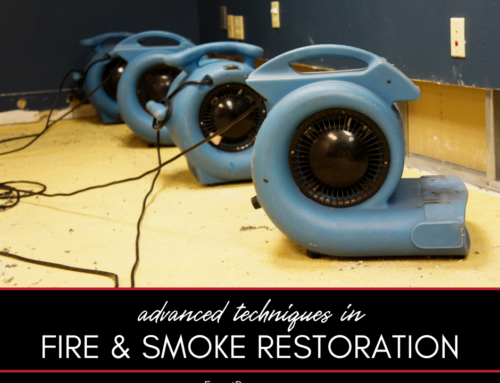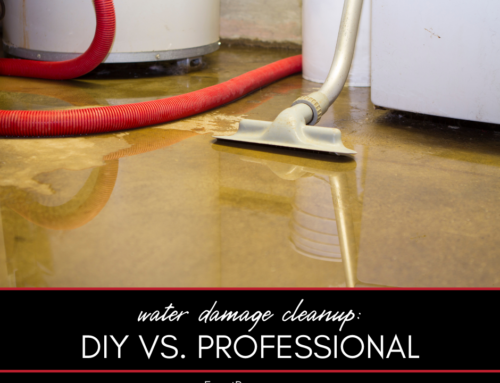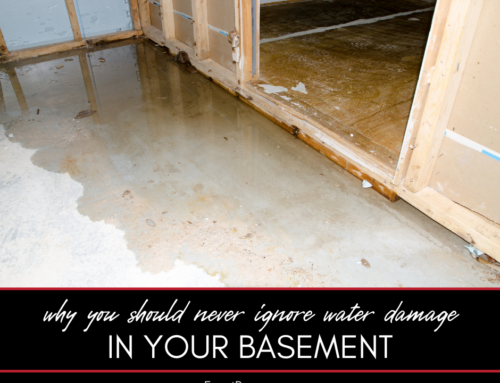Michigan winters are known for their beauty, but they can also bring challenges for homeowners, especially when it comes to plumbing. The plummeting temperatures can wreak havoc on your pipes if you’re not prepared. Whether you’ve experienced a burst pipe before or just want to be proactive, this guide is here to help. With our expertise, we’ll walk you through the steps to ensure your pipes remain intact, even during the coldest Michigan winters.
How to Prevent Your Pipes From Bursting in Michigan, Especially During Winter
Burst pipes can lead to significant damage and costly repairs. But with a bit of preparation and knowledge, you can safeguard your home.
This guide covers:
- Insulating your pipes
- Keeping a steady temperature
- Letting faucets drip
- Sealing gaps and cracks
- Disconnecting outdoor hoses
- Knowing where your main water valve is
Here’s a closer look at each.
Insulating Your Pipes
Pipes that are exposed to colder areas of your home are more susceptible to freezing. This is particularly true for pipes located in basements, attics, and garages where insulation might be minimal or non-existent. By wrapping these pipes with foam pipe insulation, you provide an added layer of protection against the cold. This insulation acts as a barrier, retaining the warmth of the water inside the pipes and reducing the chances of freezing. Additionally, for areas that are extremely cold, using heating tape can provide active warmth to the pipes, ensuring they remain above freezing temperatures.
Keeping a Steady Temperature
The internal temperature of your home plays a significant role in preventing pipe freezes. By maintaining a consistent temperature, both during the day and night, you ensure that the ambient warmth reduces the risk of freezing in the pipes. This is especially important during particularly cold spells. If you’re planning to be away from home during the winter, it’s essential to keep the thermostat set to at least 55°F. This ensures that the home remains warm enough to protect the pipes, even in your absence.
Letting Faucets Drip
It might seem counterintuitive, but allowing your faucets to have a slow drip can be a lifesaver for your pipes. When water freezes, it expands, and this expansion can exert pressure within the pipes, leading to potential bursts. By letting the faucet drip, you ensure a continuous flow of water, preventing complete freezing. This continuous flow also helps in relieving any built-up pressure inside the pipes, reducing the risk of them bursting.
Sealing Gaps and Cracks
Cold air can be a major culprit in causing pipes to freeze. Gaps, cracks, or openings in your home’s exterior walls or foundation can allow this cold air to seep in, directly affecting any pipes in those areas. It’s essential to regularly inspect your home for such vulnerabilities. Using caulk or other sealants to close these gaps ensures that the cold air stays out, providing an added layer of protection for your pipes.
Disconnecting Outdoor Hoses
Outdoor hoses can retain water, and during winter, this water can freeze and expand back into the pipe, causing potential blockages or bursts. Before the cold season begins, it’s a good practice to disconnect these hoses, drain any residual water, and store them indoors. Additionally, shutting off the indoor valves that supply these outdoor hose bibs and draining the remaining water can prevent any water from freezing inside the pipes.
Knowing Where Your Main Water Valve Is
Emergencies can happen, and in the case of a suspected leak or if you believe a pipe has frozen, acting quickly can prevent extensive damage. Knowing the location of your home’s main water valve and understanding how to shut it off can be crucial. Turning off this valve stops the flow of water, ensuring that even if a pipe has burst, the amount of water damage is minimized. Regularly checking the valve and ensuring it’s in working condition can be beneficial when you need to act fast.
FAQ About Preventing Burst Pipes in Michigan Winters
Here are some frequently asked questions about safeguarding your pipes during Michigan’s cold months. If you don’t see the answers you’re looking for here, please call our office. We’re here to help.
How Can I Tell if My Pipes Are Frozen?
If you turn on a faucet and only a trickle comes out or not at all, your pipes might be frozen. Check for visible frost on exposed pipes.
Are Certain Pipes More Prone to Freezing?
Yes, pipes in unheated areas like basements, attics, and crawl spaces, as well as those running along exterior walls, are more susceptible.
What Should I Do if My Pipes Freeze but Haven’t Burst?
First, shut off the main water valve. Then, use a hairdryer, heating pad, or warm towels to gradually thaw the frozen section. Avoid using open flames.
How Often Should I Check My Pipes in Winter?
It’s a good idea to inspect your pipes regularly, especially during cold snaps or if you’ll be away from home for an extended period.
Can Moving Water Prevent Freezing?
Yes, even a slow flow of water can prevent pipes from freezing. Hence, the advice to let faucets drip during extreme cold.
Michigan winters can be tough on your home’s plumbing, but with the right precautions, you can prevent the disaster of burst pipes. Remember, preparation is key, and we’re always here to assist with any concerns or questions you might have.
Do You Need a Disaster Remediation Expert in Washtenaw County or Jackson County?
If your home has already been damaged, we can help. Check out our services and call Exact Recon for your free disaster remediation quote today. We offer:

